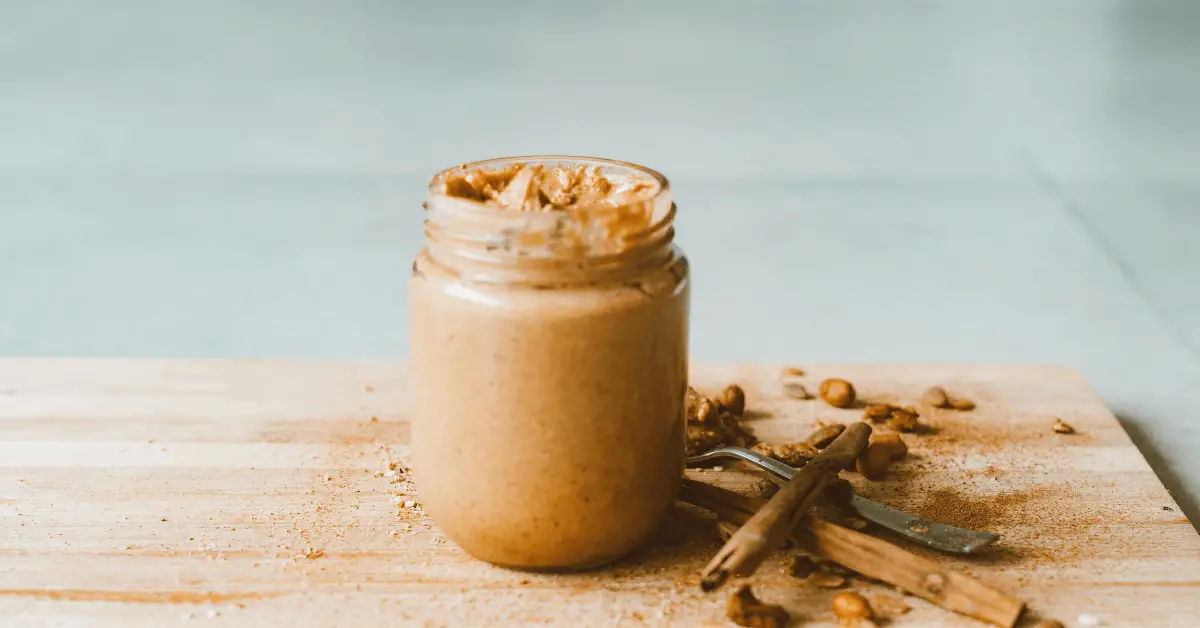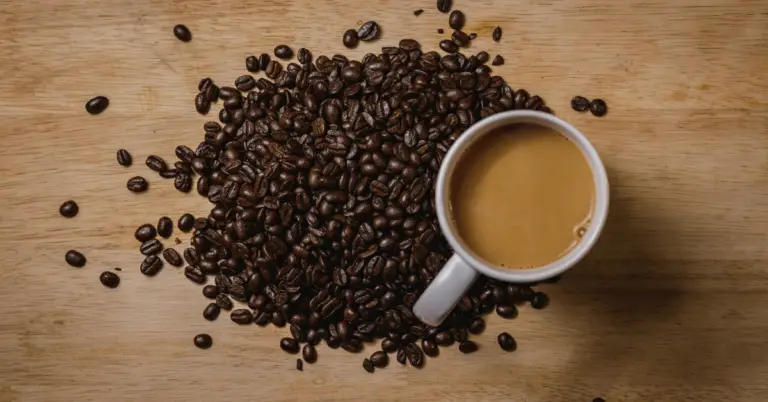Aflatoxin Free Healthy Peanut Butter
*Please note that as an Amazon Associate and an associate of other companies, I earn from qualifying purchases at no extra cost to you. I appreciate your support! Click here to see the full affiliate disclosure.
Do you know the health benefits of peanut butter? Healthy Peanut butter is filled with proteins, fibers, polyphenols, antioxidants, vitamins, minerals, resveratrol, phenolic acids, flavonoids, and phytosterols, all of which benefit your health. Additionally, peanuts provide coenzyme Q10 and contain all 20 amino acids. Some of these compounds are great for disease prevention and longevity.
That’s not all! This study showed that frequent nut consumption was associated with a healthy profile of inflammatory biomarkers and this study showed that regular peanut and peanut butter consumption may help memory function and stress response.
Despite all of these good things about peanut butter, there is a lot of talk on social media and on the internet that peanut butter isn’t healthy. People say that it’s filled with aflatoxins, pesticides, omega 6 fats, hydrogenated oils, sugar, and preservatives. Do I agree with them? Yes and no. Conventional peanut butter isn’t healthy, however, there are some better options out there that don’t contain some of these contaminants.
What Are Aflatoxins?
Aflatoxins are toxins produced by fungi that are found on crops, including peanuts. The main fungi are Aspergillus flavus and Aspergillus parasiticus, which are more prevalent in warm/humid regions of the world. Aflatoxins can be genotoxic, meaning they can damage DNA and cause cancer in animals. They can also cause liver cancer in humans. (Source).
What peanut butter is aflatoxin-free? While we can’t be 100% sure, Valencia peanuts are supposed to be aflatoxin-free because they are grown in a dry climate (New Mexico) in bushes above the ground. Because they are grown in a dry weather environment, they are less susceptible to aflatoxins. Aflatoxins can grow on peanuts at any time so if you happen to see shriveled nuts or brown spots in your peanut butter, don’t eat it.
Does Organic Peanut Butter Have Mold or Aflatoxins?
Organic only means that it isn’t sprayed with pesticides. Unfortunately, organic peanut butter can still have mold. Is it better to buy organic peanut butter? Absolutely! Pesticides can harm your body and peanuts are one of the most heavily sprayed crops. I only buy organic Valencia peanut butter.
Is It Best To Keep Peanut Butter In The Fridge?
Aflatoxins can grow on peanuts when they are in the field, after they are harvested, or even in storage. Even after you purchase peanut butter at the store, storage is important. Mold is less likely to grow when it’s in the fridge. This is the reason why I recommend always putting your peanut butter in the fridge.
What Should You Avoid In Peanut Butter?
It’s important to avoid, sugar, sweeteners, artificial flavors, hydrogenated vegetable oils (or any oil), preservatives, or other additives. The only ingredient that should be in peanut butter is peanuts. Salt is a personal choice. Personally, I choose peanut butter without salt, but if you like salty peanut butter, I’d say go for it.
Does Peanut Butter Contain Omega 6 Fats, Lectins, and Phytic Acid?
Even if you find a perfect ingredient organic peanut butter made with Valencia nuts and without aflatoxins (like I will mention below), peanut butter still contains omega-6 fats, lectins, and phytic acid. Are these things good or bad?
There are claims that omega-6 fats increase inflammation if they are not paired with omega-3s. This is because omega-6 fats convert linolenic acid into arachidonic acid. Arachidonic acid can cause inflammation in the body. This article states that “omega-6 fats are not only safe but they are also beneficial for the heart and circulation,” It also states that the body converts very little linolenic acid into arachidonic acid, even when there are large amounts.
While the article above states that they are safe to consume, this article states “The overconsumption of linoleic acid, mainly from industrial omega-6 seed oils, and the lack of long-chain omega-3s in the diet puts the population in a pro-inflammatory, pro-allergic, pro-thrombotic and autoimmune-prone state.” It also states from the article that refined seed oils are more to blame for this inflammatory state. It leads me to believe that even though peanuts contain these omega-6 fats, they may not be as inflammatory as seed oils. Just to be safe, try and up your omega-3 fats!
Lectins can prevent your body from absorbing nutrients from other foods. In some individuals with dysfunctional enzymes, it can also cause intestinal damage and hurt digestion. Peanuts are not the only food that contains lectins. In fact, many foods contain lectins. These foods include beans, potatoes, lentils, tomatoes, eggplants, fruits, wheat and other grains. If you have digestive issues or other health issues and your doctor suggests that you stay away from lectins, then I would avoid peanut butter, otherwise, moderation is key.
Peanuts also contain phytic acid, which can reduce the bioavailability of certain nutrients due to its binding properties. However, the levels of phytic acid in peanuts are lower than those found in other legumes, like soybeans. It also contains a small amount of soluble fermentable fiber that can possibly improve the absorption of some nutrients and minerals. All seeds, grains, legumes, and nuts contain varying amounts of phytic acid.
Where To Buy Mold Free Peanut Butter
Here are my suggestions for aflatoxin-free peanut butter….
1. MaraNatha Organic Peanut Butter
This is the only company that states on its website that their peanut butter is “virtually aflatoxin-free”. The ingredients in this peanut butter are peanuts and palm oil. While I would rather eat peanut butter without palm oil, palm oil isn’t terrible for you. I generally try to avoid it though because unless a company states that their palm oil is “sustainably sourced”, animal habitats are destroyed to obtain it. Does this brand use sustainably sourced palm oil? I didn’t see it on their website or the packaging, but we’d have to contact the company to find out for sure.
If you decide to pick this healthy peanut butter, make sure you get the no sugar one at the link below. Some of MaraNatha’s peanut butters contain sugar.
2. Trader Joe’s Valencia Peanut Butter
This is my peanut butter of choice! I like it too because there isn’t oil on top once you stir it up and put it in the fridge. The ingredients in this healthy peanut butter are “organic Valencia peanuts”. That’s all! They also have an organic salted option if you prefer salt in your peanut butter.
3. Kirkland Organic Creamy Peanut Butter U.S. Valencia Peanuts
This healthy peanut butter is organic and made with Valencia peanuts. The ingredients are organic peanuts and sea salt.
Final Thoughts on Aflatoxin-Free, Healthy Peanut Butter
While it is not a guarantee that these peanut butters are 100% aflatoxin-free, they are more likely to have low levels (if any) as long as they are stored properly. Due to peanut butter’s lectins and phytic acid, I would eat peanut butter in moderation and rotate other nut butters into my diet. Other nut butters are not perfect either. Is anything perfect? But they do have some nutritional benefits and they taste amazing!
Also, just a warning…. if you have a peanut allergy, you will still be allergic even if you find an aflatoxin-free peanut butter so please do NOT consume it. For everyone else without an allergy, I hope you found an aflatoxin-free healthy peanut butter that works for you and your family.
Are you looking for mold-free coffee as well? Yep, mycotoxins can also be in coffee. Here is an article for mold-free coffee.
Follow Clean Mindful Living On Social Media






